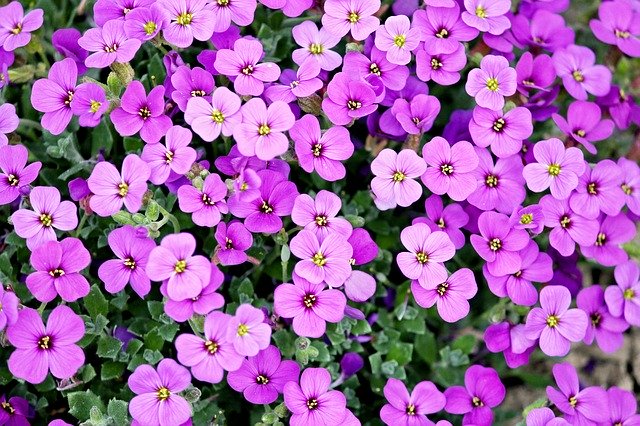
Many people are only just how wonderful having an organic gardening. The aim of this article will show you how to get off to a great start. Just put these ideas and nutritious results.
Beginning your garden with healthy soil is your first defense against pests! If you have healthy looking plants, they are stronger and more resistant to diseases and bugs. Begin with a high-quality soil with less chemicals to avoid salt accumulation, and you give your garden an excellent chance of growing healthy plants.
Your plants need to adapt and must be gradually introduced to changes of environment. Put them out in the sun for a couple of hours the first day. As you continue the first week of the project, slowly increase the time they spent outdoors. By weeks end, your plants should be ready to make the big move with no problem!
This raises the plants will survive to adulthood. This is also enables you to close gaps between planting cycles.Your seedlings will be ready to be planted when you remove the previous set of mature plants.
Cover fences and walls with lots of climbers. Climbing plants can cover a wall after one growing season only. You may also be interested in training them over an arbor or trellis. You can also grow them among existing landscape trees and plants. Some climbers you plant will have to be tied off and supported, but others have no problem attaching themselves to any surface using their tendrils or twining stems Honeysuckle and jasmine are very beautiful varieties of such climbers.
Plant perennials in your garden that are slug-proof. Slugs and snails can kill a plant in one night. These pests are particularly fond of young perennials and those varieties with leaves that are tender, herbaceous stems and leaves, and thin. Some perennials are not preferred meals for snails and slugs, particularly perennials that have hairy, leave a bad taste in slugs’ mouths or are difficult to chew through because their leaves aren’t tender. Some varieties of these plants are campanula, campanula, euphorbia, or euphorbia.
Use annuals and biennials to enliven your flower garden. You can also use these flowers to fill any spaces between shrubs and perennials when they are in the sun.Notable biennials and annuals include marigold, rudbeckia, petunia, petunia, marigold and sunflower.
Transplanting plants and bringing them indoors can protect them from harsh winters. Your best bet would be try to save the best or most hearty plants. Carefully dig up the plants, using caution not to disturb the roots, then transfer into a pot.
Most vegetables that can be grown need that much sun exposure to grow well and quickly. This is also rings true for some flowers.
Know the perfect time to harvest the vegetables you plant. Each variety needs a slightly different amount of growing time to produce the best flavor. For instance, zucchini and baby peas are best picked young.Tomatoes, in contrast, are tastiest when they have been allowed to ripen on the vine as long as possible.
It is important to choose the right type of soil if you want to achieve the best results. Depending on what type of plants you have, your soil may or may not be adapted. For special requirements, you can build separate areas with soil that is right for certain plants.
Spectrum Pesticides
Don’t use broad-spectrum pesticides that aren’t meant to kill specific types of garden pests. These kinds of pesticides kill the helpful insects that eat the pests. Bugs that provide a benefit to your garden are more easily killed by these broad-spectrum pesticides, and using them could mean an increase in the pests you are actually trying to get rid of.This can cause you to use an additional amount of pesticides in order to attempt to fix the problem.
A garden needs the right type of soil to grow properly. Have a soil report done. It is cost effective and you can make necessary adjustments, based on the report, to your soil so it is correctly enriched to encourage plant growth. You can often find Cooperative Extension offices that provide this service, which can help to make your garden flourish.
Gardening should be a great relaxation activity.There are numerous avenues to pursue when attempting to find your personal relaxation and peace. Horticulture is one of the most relaxing and gratifying ways to spend your extra time. The returns are huge for a very minute up front investment of money required. The best thing you will get out of planting and happiness knowing that you can grow your own garden.
Bees like it because it gives them nectar in the spring.Spiders, ground beetles, because heather beds are generally undisturbed. Keep this in mind and always wear appropriate gardening gloves.
Remember to remove weeds from the garden. Weeds can kill a precious garden. To help with the removal, you can use white vinegar. Yes, white vinegar actually kills weeds! Load up your spray bottle with some white vinegar, and spray the weeds away instead of breaking your back removing them by hand.
Using aspirin water can prevent certain plant diseases. Dissolve one aspirin in four gallons of water. You simply have to spray the solution on your plants to assist them fight of disease. Use this method to spray your plants every three-week period.
As you have learned before, getting your organic garden perfected just takes a little bit of time and patience. Start using these tips to direct your efforts in the right direction. Just remember to apply these tips as you have read them and your garden should do just fine.
Get a wheelbarrow, and a stool so that you can kneel down while gardening. In order to relieve stress on your knees when gardening, always use a small garden stool to be more comfortable. You will need a wheelbarrow in order to perform various gardening chores, it is a good thing to have on hand.